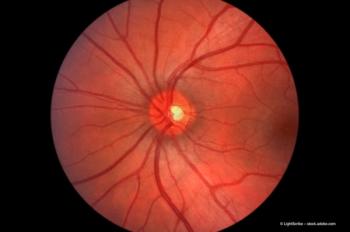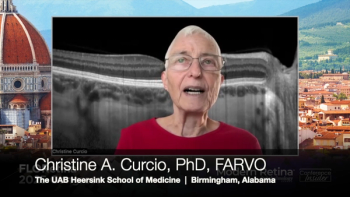
Achieving clarity in 2006
I have been disappointed by the outcomes of anti-VEGF monotherapy. I feel that far too many retreatments are required with no clear specified endpoint
If it was this time last year and we were to predict what would be the key area of activity in the vitreoretinal segment of ophthalmology in 2006, there is no doubt that we would have predicted a big change in the way that neovascular (wet) age-related macular degeneration (AMD) is treated. This year certainly did not disappoint. Having proven itself to be a winner in the treatment of cancer, angiogenesis therapy took centre stage for research and development (R&D) in AMD.
Wet AMD: two stars launched
February saw the approval of the first anti-angiogenesis therapy for the treatment of wet AMD, Macugen (pegaptanib sodium injection) - the result of a joint collaboration between Pfizer and OSI Pharmaceuticals. (OSI has since announced that it intends to remove itself from the eye disease market).
Lucentis (ranibizumab; Genentech/Novartis), on the other hand, is a potent vascular endothelial growth factor (VEGF) binding derivative of the bevacizumab molecule (Avastin). Originally, the creators of Avastin, Genentech, reported that the bevacizumab molecule was too large to penetrate from the vitreous deep into the retinal layers. Subsequent uncontrolled studies, however, have shown that the clinical efficacy of bevacizumab is likely to be very similar to that of ranibizumab.
Avastin still making the headlines
As a result, the extreme interest in Avastin carried into 2006, with many investigators publishing reports of the benefits of this agent in the treatment of wet AMD, when administered by intravitreal injection. So far so good, is the general consensus, with the off-label agent inducing improvements in vision with no significant adverse events being reported. One study reported at this year's ARVO meeting found that the use of Avastin in patients with choroidal neovascularization (CNV) resulted in visual acuity increases and significant decreases in macular oedema. Additional retrospective research has also indicated that Avastin may be effective in other forms of neovascular AMD. It should be noted, however, that Avastin, while widely used by ophthalmologists, has not undergone the same rigorous clinical testing as Lucentis or Macugen for the treatment of wet AMD.
Newsletter
Get the essential updates shaping the future of pharma manufacturing and compliance—subscribe today to Pharmaceutical Technology and never miss a breakthrough.




























